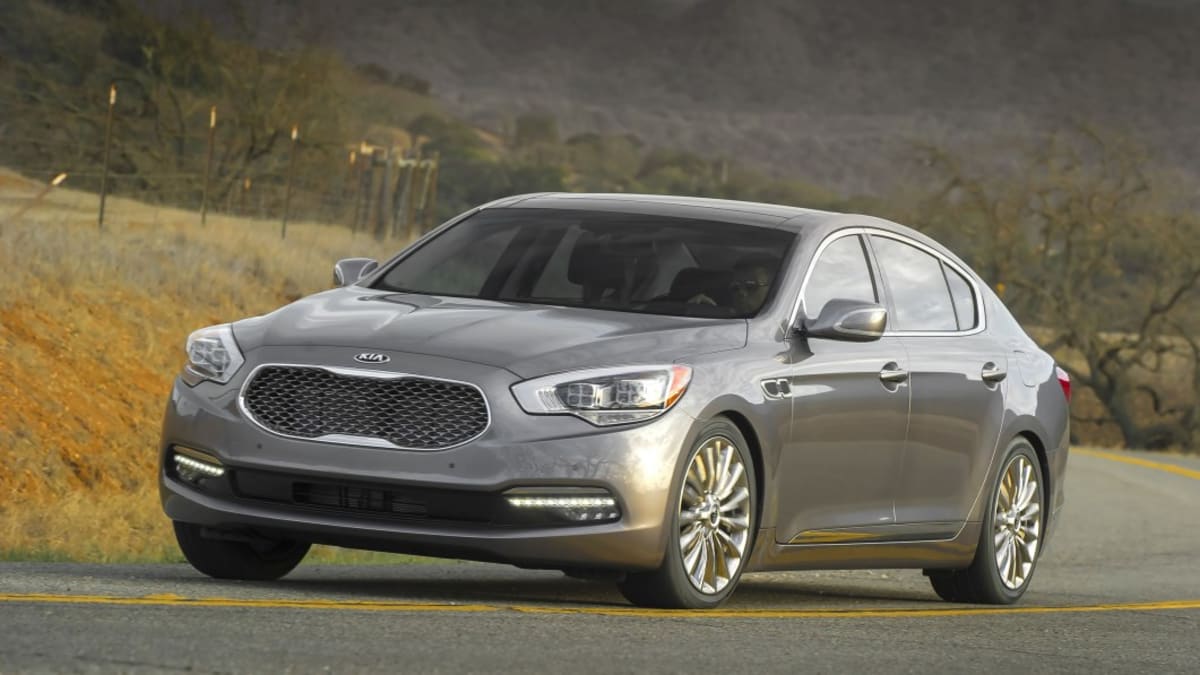Sister companies Hyundai and Kia have independently issued an urgent safety recall that applies to almost 3.4 million cars built between the 2010 and 2018 model years. The vehicles included in the campaign are fitted with a defective hydraulic part that can leak and start a fire.
Kia's recall is assigned number 23V-651 by the National Highway Traffic Safety Administration (NHTSA) and it includes 1,730,192 cars, though the brand estimates that the issue is present in about 1% of these vehicles.
Hyundai's is assigned number 23V-652 and it includes 1,642,551 cars, though here again the company estimates that 1% of these vehicles are at risk of a fire.
The full list of recalled cars:
- 240,589 units of the 2012-2015 Hyundai Accent built from March 5, 2011, to October 31, 2014.
- 29,232 units of the 2012-2015 Hyundai Azera built from November 29, 2011, to October 31, 2014.
- 777,145 units of the 2011-2015 Hyundai Elantra built from October 29, 2010, to November 13, 2014.
- 22,481 units of the 2013-2015 Hyundai Elantra Coupe built from March 16, 2012, to October 30, 2014.
- 6,013 units of the 2014-2015 Hyundai Equus built from April 12, 2013, to October 29, 2014.
- 51,789 units of the 2011-2015 Hyundai Genesis Coupe built from September 1, 2010, to October 31, 2014.
- 45,322 units of the 2013-2015 Hyundai Santa Fe built from October 17, 2012, to October 31, 2014.
- 75,554 units of the 2013 Hyundai Santa Fe Sport built from July 12, 2012, to June 15, 2013.
- 170,402 units of the 2010-2013 Hyundai Tucson built from December 8, 2009, to August 19, 2013.
- 60 units of the 2015 Hyundai Tucson Fuel Cell built from April 28, 2014, to October 23, 2014.
- 83,213 units of the 2011-2015 Hyundai Sonata Hybrid built from December 2, 2010, to October 31, 2014.
- 116,911 units of the 2012-2015 Hyundai Veloster built from July 2, 2011, to October 31, 2014.
- 23,840 units of the 2010-2012 Hyundai Veracruz built from December 24, 2009, to August 9, 2012.
- 62 units of the 2010-2019 Kia Borrego built from November 27, 2009, to June 14, 2018 (sold exclusively in U.S. Territories).
- 30,362 units of the 2014-2016 Kia Cadenza built from February 1, 2013, to January 7, 2016.
- 179,051 units of the 2010-2013 Kia Forte and Forte Koup built from August 18, 2010, to March 22, 2013.
- 5,015 units of the 2015-2018 Kia K900 built from December 18, 2013, to October 30, 2017.
- 148,753 units of the South Korea-made 2011-2015 Kia Optima built from August 12, 2010, to July 23, 2015.
- 234,629 units of the Georgia-made 2012-2013 Kia Optima built from August 12, 2011, to July 11, 2013.
- 32,891 units of the 2011-2013 Kia Optima Hybrid built from February 15, 2011, to December 12, 2013.
- 207,746 units of the 2012-2017 Kia Rio built from June 21, 2011, to March 31, 2017.
- 397,163 units of the 2011-2014 Kia Sorento built from March 3, 2010, to June 14, 2013.
- 349,309 units of the 2011-2013 Kia Soul built from June 9, 2010, to October 2, 2013.
- 143,615 units of the 2010-2013 Kia Sportage built from May 26, 2009, to October 7, 2013.
- 1,484 units of the 2010 Kia Rondo built from September 19, 2009, to July 30, 2010.
- 112 units of the 2011 Kia Rondo built from July 21, 2010, to February 9, 2011 (sold exclusively in U.S. Territories).
Hyundai told the NHTSA that the ABS module "can leak brake fluid internally and cause an electrical short over time," which "could result in significant overcurrent in the ABS module" and increase the risk of an engine bay fire while parked or driving. It adds that the O-ring fitted to the ABS motor's shaft "may be susceptible to physical changes over time due to varying factors," like contaminants in the brake fluid.
Kia noted that the Hydraulic Electronic Control Unit (HECU) "experiences an electrical short-circuit condition that results in excessive current," which increases the risk of a fire. It adds that it hasn't found the exact cause of the short-circuit yet, but that warning signs include the "check engine" or "ABS" warning lights illuminated in the instrument cluster, a burning or melting smell, and smoke from the engine bay.
Hyundai wrote that it's safe to continue driving a car included in the campaign, but it recommends parking outside and away from structures. Both brands will begin notifying owners of affected vehicles by mail in November 2023. Motorists will need to take their car to a dealer so that a technician can replace the ABS system's fuse on a Hyundai and new fuse(s) on a Kia with parts that have a lower amperage.


Sign in to post
Please sign in to leave a comment.
Continue